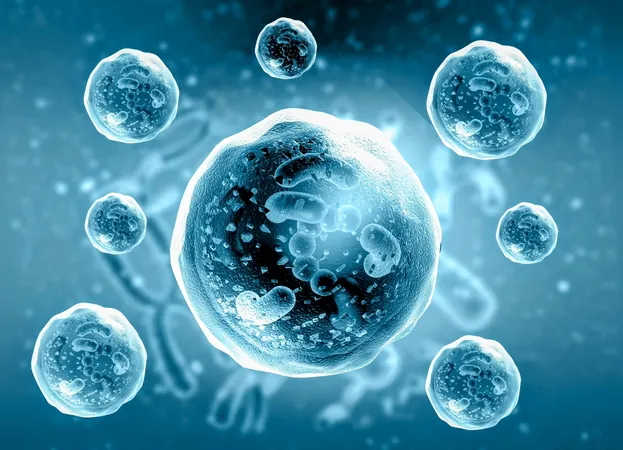
Shocking Discovery: Memory May Be Stored in All Cells, Not Just the Brain!
2024-11-11
Author: Yan
Shocking Discovery: Memory May Be Stored in All Cells, Not Just the Brain!
For decades, we lived under the assumption that memory and learning were exclusively functions of the brain. While it's well-established that brain cells—neurons—are crucial for storing memories, emerging research suggests a groundbreaking twist: memory may actually be stored in various cells throughout the body!
A pioneering study conducted by researchers at New York University indicates that even non-brain cells, such as those found in nerve and kidney tissues, possess the ability to learn and retain information. This exciting discovery could revolutionize our understanding of memory mechanisms and potentially lead to innovative treatments for learning and memory-related disorders.
The Basics of Memory
Memory functions akin to an extensive filing system in the brain. Each time you create a new memory—be it meeting a friend or learning a new concept—the brain encodes this information into patterns of neural activity. These patterns are stored across various regions of the brain, depending on the type of information. Retrieving a memory involves activating the specific neural pathways associated with that memory, much like searching for a file on a computer.
However, it's essential to note that memory is not infallible. It can change over time due to various factors such as stress, sleep, and even nutrition. The more you recall a memory, the more it may be updated with new information or emotions, leading to variations from the original event.
Non-Brain Cells and Memory Formation
“The common belief has been that learning and memory are exclusive to the brain, but our study reveals that other types of cells also exhibit memory capabilities,” says Nikolay V. Kukushkin, lead author of this trailblazing research.
The study aimed to determine whether non-brain cells could contribute to the memory process. Researchers deployed a classic neurological principle known as the massed-space effect, which indicates that we better retain information when learning occurs in spaced intervals rather than consecutive, exhaustive sessions.
Groundbreaking Experiments
In their experiment, scientists examined two types of non-brain human cells—cells from nerve and kidney tissues—in controlled lab settings. They exposed these cells to different patterns of chemical signals, mimicking how brain cells receive neurotransmitters during learning processes.
The revelation? These cells not only responded to these signals but also activated a "memory gene," a gene characteristic of brain cells when they encode data into long-term memory.
Findings That Could Change Everything
The results were astounding! The non-brain cells could determine when the chemical signals were presented repeatedly versus continuously, similar to how neurons respond more effectively to spaced learning. This response—strong activation of the memory gene during spaced pulses—demonstrates that the massed-space effect isn't restricted to neurons, suggesting that memory may be a fundamental characteristic of all cells.
Future Implications
This groundbreaking research not only expands our horizon of memory studies but could also bear significant health implications. Kukushkin suggests, “This discovery could lead to enhanced ways to improve learning and treat memory disorders. Moreover, it implies that our bodies might need to be regarded as more than just the brain; for instance, considering what our pancreas remembers about our dietary patterns could improve blood glucose regulation.”
As we dive deeper into this revolutionary research, questions loom large: What does this mean for our understanding of memory formation? What could be the impact on future treatments for memory-related issues? The answers are sure to stimulate further investigation and debate in the scientific community.
Stay tuned as we keep you updated on the unfolding saga of memory research, which just might change the way we think about learning, health, and our very bodies!

 Brasil (PT)
Brasil (PT)
 Canada (EN)
Canada (EN)
 Chile (ES)
Chile (ES)
 España (ES)
España (ES)
 France (FR)
France (FR)
 Hong Kong (EN)
Hong Kong (EN)
 Italia (IT)
Italia (IT)
 日本 (JA)
日本 (JA)
 Magyarország (HU)
Magyarország (HU)
 Norge (NO)
Norge (NO)
 Polska (PL)
Polska (PL)
 Schweiz (DE)
Schweiz (DE)
 Singapore (EN)
Singapore (EN)
 Sverige (SV)
Sverige (SV)
 Suomi (FI)
Suomi (FI)
 Türkiye (TR)
Türkiye (TR)